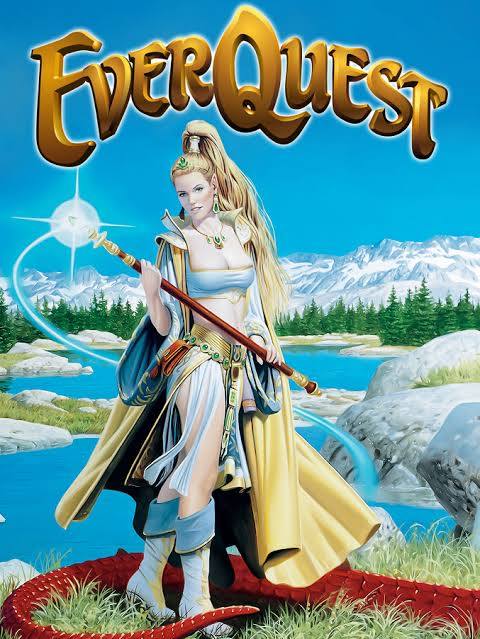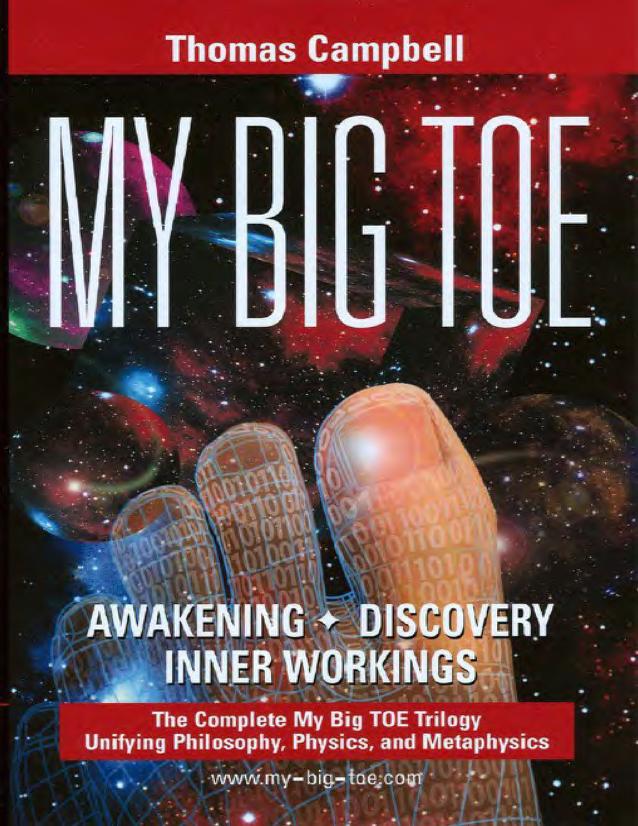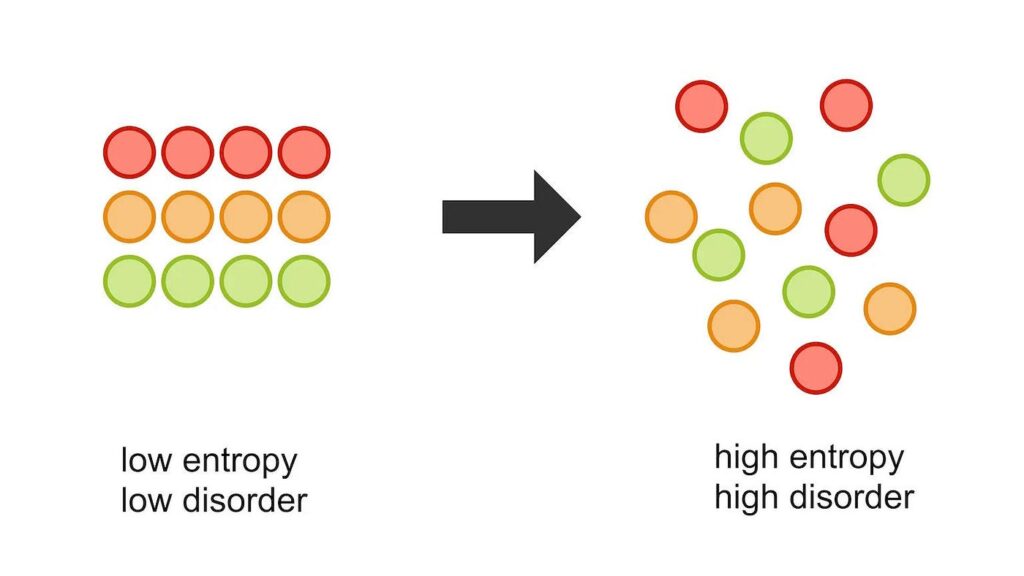I am thrilled right now. Why? Because I’ve found someone who thinks the way I do about the mechanism of Psi. Let me explain:
Back in the day, I used to play a Massive Multiplayer Online Role-Playing game (MMORPG) called EverQuest (and its sequel, EverQuest II). My handle, “Tantlian,” is what I called my avatar in the game (Tantlian Blessed). The name just came to me; it wasn’t generated. Anyway, I spent enough time on these games that I leveled up to the high 40s.

If you haven’t played on these platforms before, imagine logging into a game where you get to choose your avatar’s attributes. In Everquest, I could be any of a number of fantasy-type characters. I could be either gender; I could have any eye or hair color. My body type was locked into whether I chose between dwarf, elf, or human, but otherwise, my avatar was unique to me. Once I got that down, I got to decide what my avatar would be good at. I could choose a magic user, a healer, or a fighter. Once these were decided, I could enter the game. Doesn’t this sound an awful lot like how the “other side” and the work done by the UVA Department of Perceptual Studies have said we decide upon our lives before we’re born?
I enter the game as a first-level character. That means I have very few abilities and a very low strength. I am ignorant, and I have very few items in my bag. I’m wearing the most basic of clothing. Fortunately, the game provides a training level for avatars to understand the game’s mechanics and how to do a number of “in-game” activities. I interacted with “Non-player characters” (NPCs) and “Player Characters” (PCs or other human players). I had to click on the NPCs to get a conversation out of them, which had been programmed, or they would attack me, and I would have to defend myself or die. I interacted with PCs through a series of texts. The NPCs could be adversarial or necessary for me to progress through the game. The PCs and I could join together to form a group if we had to tackle a particularly difficult foe. Sometimes, we would gather into a group to enter a dungeon or other location, which seemed like going into a pocket universe. As I progressed, which took longer and required me to achieve difficult tasks for each level, I also attained more “Experience” and “Wisdom” (not to mention very cool mithril armor).
Now that I’ve described just one of the plethora of MMORPGs in existence, I want to point out some important attributes:
- It is a structured environment that has been programmed.
- Within this structured environment, I have a certain amount of free will.
- I am not in the environment; I function as an avatar.
- I progress through a series of difficult events, frequently with others, to advance.
- Advancing requires gaining experience.
I have been thinking about the experiences of life on Earth compared to life in a programmed environment, especially since some physicists examining the math suggest that we may be living in a holographic universe or a simulation. Wouldn’t it be interesting if art replicated life through the invention of MMORPGs? Are we potentially mimicking the astral plains of our spiritual existence through innovations like the internet, virtual reality, and fantasy games?
I recently listened to an interview that Jeffrey Mishlove conducted with physicist and psychic healer Tom Campbell, who collaborated with Monroe of the Monroe Institute in Virginia, attempting to explain psychic functioning. Dr. Campbell is also the author of “My Big T.O.E.,” or Theory of Everything. This is a common term used by physicists to describe the combination of the theory of relativity with Newtonian physics. However, Dr. Campbell is adding the Larger Consciousness System (LCS), which other physicists have avoided since the early 20th century.

He does not play MMORPGs but has watched his grandchildren play World of Warcraft, which sparked his hypothesis that we are smaller consciousness units riding avatars on Earth. Earth (and the observable universe) is a programmed platform with a set of parameters. We can manipulate the parameters somewhat (psychic functioning); however, that is not the requirement for success. Instead, psychic functioning seems to be the way the LCS reminds us that there is more to existence than the platform where our avatars are currently gaining experience. Here are some points from Dr. Campbell’s website about why Psi seems so random:
1. The Psi Uncertainty Principle: This principle, similar to the Heisenberg Uncertainty Principle, maintains that psi phenomena (or paranormal events) cannot be perfectly predictable or repeatable. This keeps the balance of our virtual reality intact and ensures our learning environment remains effective. If everyone could control psi effects with precision, it would disrupt the free-will-based learning that our reality is set up for.
2. Personal Readiness and Intent: These phenomena often hinge on the quality of individual consciousness. When a person’s consciousness is more evolved or open, they are more likely to experience events that others might label paranormal. This individual’s readiness can influence whether or not they perceive or catalyze these events.
3. Belief and Fear: Beliefs and fears often cloud our perception. Many people aren’t even open to experiencing such phenomena because their belief systems filter them out. Conversely, strong belief and intent can increase the likelihood of experiencing these phenomena.
4. Objective Consistency Requirement: Our physical reality requires a consistent set of rules to function effectively as a learning lab. Outlandish supernatural events, if widespread and irrefutable, would dismantle the agreed-upon reality that makes our PMR (physical matter reality) a smooth-running school for consciousness.
5. Cultural Influence: Social and scientific norms often dictate what is considered “real” or “possible.” Paranormal events might be ignored or rationalized away due to prevailing cultural biases.
In essence, paranormal phenomena occur at the intersection of intent, belief, and uncertainty, all underpinned by the consciousness quality of the experiencer. They’re not the abnormal exceptions many assume them to be but a subtle reminder of a much vaster reality.
Just as in the MMORP games, life on Earth is supposed to be challenging, but leveling up requires that we love one another and recognize our connections with each other. Why? We are more successful at decreasing entropy with cooperation and love than we are with competition and warfare.
I’ve introduced another physics term, entropy, which I’d like to describe in terms of the Second Law of Thermodynamics. This law states that the entropy (the inability of heat to perform work; disorder; randomness) of the entire universe, as an isolated system, will always increase over time. The second law also states that the changes in the entropy in the universe can never be negative. Essentially, physicists think that all the matter and energy in our universe will achieve a state of equilibrium, and nothing will perform “work,” bringing on the heat death of existence. It’s cause and effect. For instance, if I drop a glass on the floor and it breaks, I cannot reverse that because the arrow of time goes in the direction of entropy.

If we, instead, live in a simulated environment created by an intelligence that seeks increasingly complex experiences (as we do when we play video games), it would create a framework where these experiences can exist, and the avatars then have a playground while also decreasing entropy.
Another interesting thing that the simulation hypothesis has going for it is the Anthropic Principle. There are certain constants, such as gravity and the expansion rate, that are so precise that deviating from them in either direction would have prevented planets from forming. Though the universe outside the comfort of Earth seems very dangerous to life, these constants allow humans to observe the universe, which may be the point.
The takeaways here are very positive. We chose to be here under certain general circumstances. We have a series of goals to achieve, but we are meant to achieve the larger goal of love and cooperation together. We aren’t suffering the vagaries of outrageous fortune, but the consequences of each of our choices on or by the others in our lives. Essentially, we aren’t failing or succeeding in life when we make a choice; we’re gaining valuable experience with each one.
